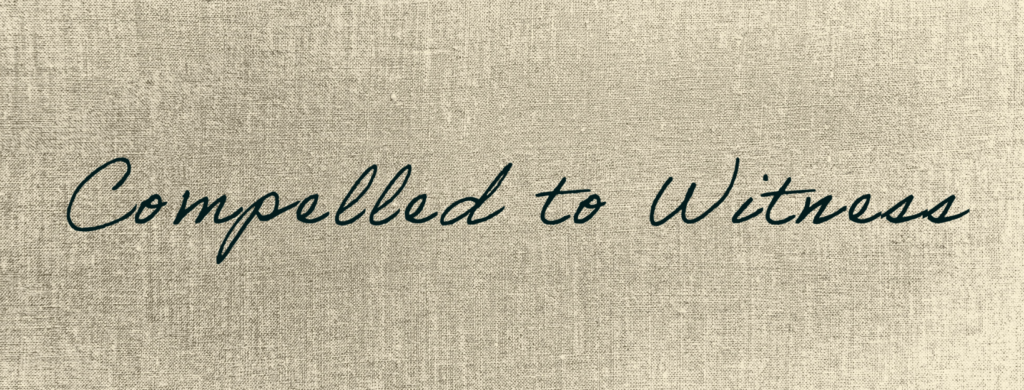Israel/Palestine FAQs
Will there ever be peace in Palestine and Israel?
As people of faith, we live in hope and act for the wholeness of creation. We know from Palestinians and Israelis that most want the conflict and the occupation to end. Most also want equal human rights and self-determination. Over the decades there have been many examples of peaceful co-operation, even during times of intense violence, and this continues today.
Do Palestinians really want peace?
Most Palestinians want peace. They want a just peace: a peace that recognizes their human rights and humanity, and that honors their right to self-determination. While peace negotiations have continued, Israeli settlements in the occupied West Bank have expanded. Palestinians believe that a just peace is a lasting peace.
Is there such a thing as Palestine?
Palestine wasn’t a state before 1948. But neither was Israel. Palestine exists, whether one sees it as a state in waiting, a state today, or an indigenous people struggling for nationhood.
Are Palestinians terrorists?
How can an entire nation or people be “terrorist”? Some Palestinians have turned to violent resistance, but many have refused violence, encouraging economic measures and leverage as a non-violent opposition to the military occupation and to the root causes of the violence.
Did God give Israel the land?
There are many ways to read our sacred texts but using the Bible to justify modern claims about land is problematic. We have always believed in God’s universal promise of peace; whatever creates violent competition is not of God. Both Israelis and Palestinians have deep and historic connections with the land. May that be our starting point.
Is religion the root cause of this conflict?
Religion has never been the main motivation in this conflict, even taking into account the modern surge in political religious movements inside both Israel and the occupied Palestinian territories. Religion may inflame tensions that already exist, but the conflict and the military occupation are about land, security, and self-determination, not about religion.
Is the church taking sides?
In its global work, the Christian Church (Disciples of Christ) works with and through partners, both Palestinian and Israeli. Palestinian Christians are long-term partners, and we respond to the issues they face. We work toward a vision of peace with justice and true security. While acknowledging the legitimacy of the State of Israel and denouncing violent acts by both Palestinians and Israelis, we name the Israeli occupation of Palestinian lands—including the continuing growth of settlements—as a major obstacle to peace in the region.
Should the church be involved in politics?
The prophets got involved with the justice issues of their time, and Jesus did likewise. God calls us to end conflict and share creation, to seek justice and love kindness. These are holy and faithful words!
Do boycotts accomplish anything?
These people might say they do: the Rev. Martin Luther King Jr., Nelson Mandela, Mahatma Gandhi, the Immokalee Workers, and the millions who made their work and many other successful boycotts possible. Boycotts are slow. They are often controversial. They’re also a time-honored, non-violent way to address injustices that have deep roots.
Doesn’t boycotting settlement goods hurt Palestinians?
In some limited cases, it may. The encroachment of Israeli settlements in occupied territory hurts Palestinians far more. Palestinian poverty is directly related to the land appropriation, violence, and enormous restrictions on movement that are part of the occupation. Low-wage jobs in an Israeli-owned factory built on Palestinian lands won’t change that; they can’t change that. Until the occupation ends, poverty, violence, and a complete absence of self-determination will be the bread that all Palestinian workers and their families must eat every day. This focused form of economic action was chosen in part to help bring awareness of the serious issues around settlements.
Is the Disciples of Christ denomination boycotting Israel?
The DOC is asking settlement enterprises, built deliberately on occupied Palestinian land, to end their production on this land; retailers to stop carrying these products; and DOC members to stop purchasing them. This action focuses only on Israeli settlement products and the government policy behind them, not on Israeli products in general.
Is the DOC obsessed with Israel?
The DOC is concerned about all conflicts and situations of injustice. We have worked for decades on issues of poverty and indigenous rights in the United States, as well as human rights and peace in other countries. The struggles against apartheid in South Africa and the civil wars in Central America are notable examples. The Christian Church (Disciples of Christ) first addressed Palestine/Israel in General Assembly in 1973.
Do Muslims hate Israel?
Many people of different faiths, including Muslims, oppose the Israeli occupation of the Palestinian territories. This is not the same as “hating Israel” or Jews. Muslims make up almost a quarter of the world’s population and almost one fifth of Israel’s. Generalizing or stereotyping all Muslims would be as wrong as stereotyping all Jews or all Christians. People have different opinions and can’t be all lumped together. As in every large, diverse community, there is a wide range of opinion.
Is using the word apartheid just a way to get attention?
Apartheid isn’t just a painful history in South Africa it is also a specific crime according to international law. It refers to of a system of legalized racial segregation in which one racial group is deprived of political and civil rights. What we see happening in Israel/Palestine clearly seems to fit the legal definition of apartheid as Palestinians do not have equal access to water, vaccines, jobs, the ability to travel, etc.
Learn More:
Previous Disciples Middle East Resolutions
Response to Kairos Palestine
DOC and UCC Leaders issue a message and call in response to the Kairos Palestine Cry for Hope
Countering Islamophobia
Denominational partners in the Middle East
Resources for study

